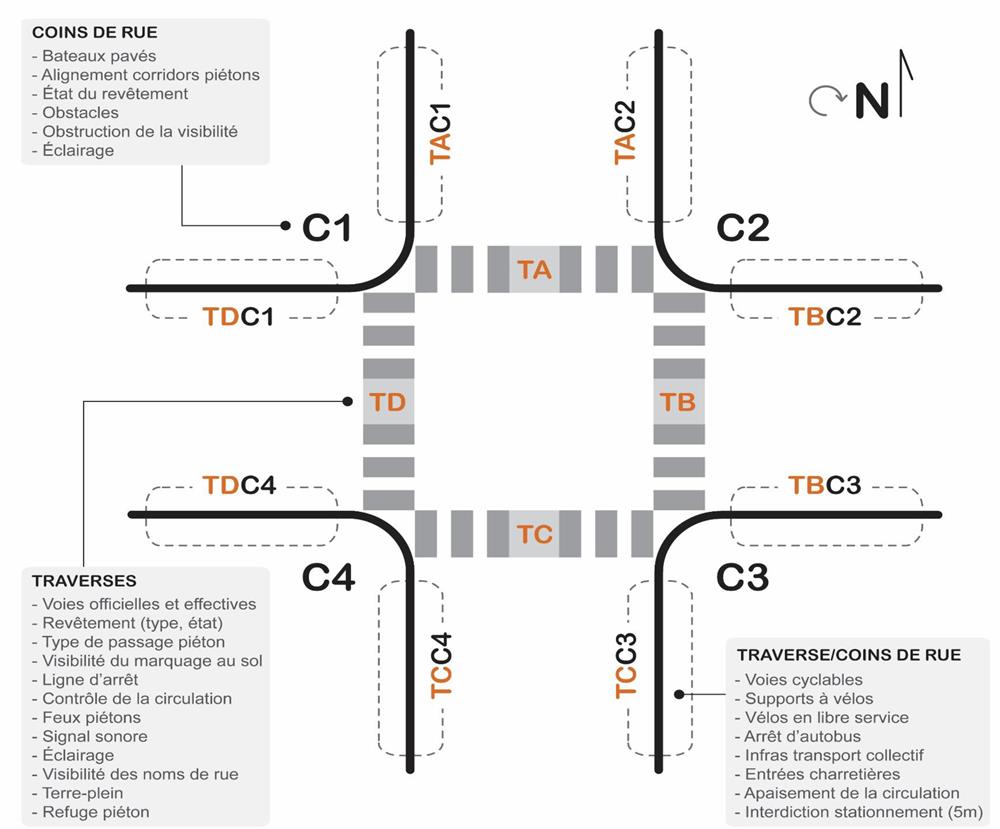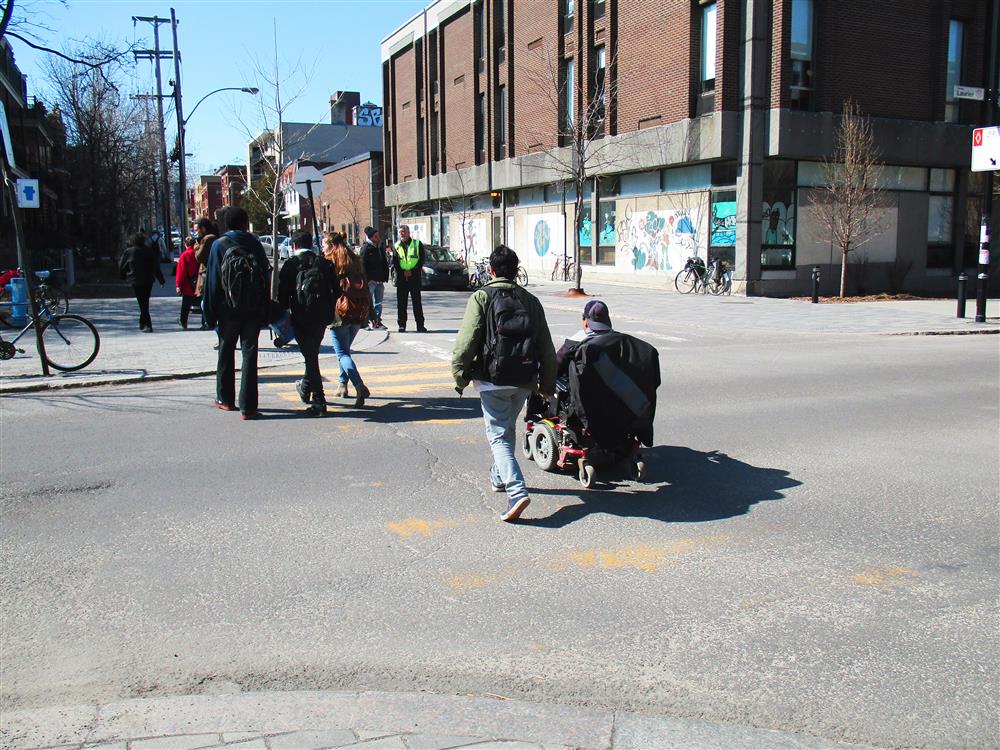Accessibility assessments of urban areas using 114 indicators
- Solution
- PPAS AU Audit of Safe Active Pedestrian Potential
- Organization
- Logic Society
- Country of Implementation
- Canada
- Region
- North America
- City
- Québec, Montréal
- Start Year
- 2015
- First published
- 31.01.2018
Solution details
People
“Our tool promotes the creation of pedestrian infrastructures that are universally accessible, sustainable, and safe for all citizens.” Martine Laurin, B. Urb., Urban planning & Accessibility Consultant, Société Logique
Société Logique is a non-profit organization based in Montréal, Canada, that promotes Universal Design. They have created PPAS AU, a paper-based assessment form to review the level of ease by which persons with disabilities, the elderly, and children can move through public spaces such as a pavements, crossings, and buildings. PPAS AU has been used in six neighbourhoods in and around Montréal since the start of the initiative in 2015.
Problems Targeted
The needs of the more vulnerable, including the elderly and persons with disabilities, are not always considered when making improvements to urban infrastructure. Reliable data on the accessibility features of public spaces are non-existent, incomplete, or difficult to access.
Solution, Innovation and Impact
The Audit of Safe Active Pedestrian Potential (PPAS AU) is a user-friendly input form supported by a user guide and a one or two-day training workshop. Government bodies and NGOs use the form on-site to compile data about road junctions, pedestrian crossings, pavements, cycle paths, physical access to public transport, urban functions, buildings, the environment, the countryside, and urban safety. Users register information against 114 predefined objective indicators on how favourable the locations are for use and to identify elements that need correction. Users deposit their data into an online database, which any interested organizations can access and use in their own assessments and analyses. Designed by Société Logique, PPAS AU stakeholders include the Office of Persons with Disabilities in Québec, a researcher and representative from the Integrated University Health and Social Services Centre, and a representative of the Direction de Santé Publique de Montréal (Public Health Department). Their input was further coordinated with experts and groups supporting persons with disabilities. PPAS AU has been used in six neighbourhoods in and around Montréal, five of which validated the features currently in place. In one case several corrections were made, such as repairing walkways, adding curbs, and marking pedestrian crossings.
Funding, Outlook and Transferability
PPAS AU has been tested in a variety of environments, including a dense urban area with mixed public transport, a suburban commercial area, and suburban residential areas – strongly supporting the potential for further replication within Quebec and beyond. Government bodies and NGOs are the primary users of the form, and Société Logique aims for municipalities to use the form to enable cities to consider accessibility when rebuilding their infrastructure. Currently available in a printable paper-based format, development is underway to provide the tool on a mobile application in 2018. The Office of Persons with Disabilities provided funds for the development of the hard copy version of the tool. “Montréal Métropole En Santé” (“The Healthy Metropolis”) is contributing with funding towards the technological development of the digital form and database. Société Logique receives payment from users for training sessions, for expert analysis of the data, and for diagnostic reports – all of which allows the service to be self-sustainable. Société Logique also offers a fee-based service for conducting a full review and reporting.
Media
Related information
- Connections
- 2
-
Organization
- People

